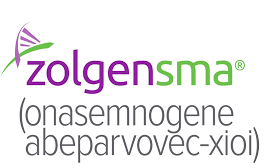The pause in access to treatment with Zolgensma in children with type 1 SMA aged older than 12 completed months has been lifted.
After a number of children having experienced significant adverse drug reactions, in particular affecting the liver following the administration of Zolgensma, NHS funded treatment with Zolgensma in England was temporarily paused in children older than 12 months whilst the Medicines and Healthcare products Regulatory Agency (MHRA) reviewed all available data and adverse incident reports.
In addition to clinical evidence patient organisations have also collected and submitted real world examples for examination to MHRA. After the analysis has been completed, NHS England has asked patient groups to share this update with the UK SMA Community:
“I am writing to let you know that the pause of treatment with Zolgensma in children with type 1 SMA aged older than 12 completed months has been lifted. The NICE recommendations remain unchanged: Zolgensma is recommended as an option for treating type 1 SMA in babies aged up to 12 months.”
Colleagues at the Medicines and Healthcare products Regulatory Agency (MHRA) considered all the available data including information and adverse incident reports submitted through the Yellow Card scheme, the published literature, responses from our international regulatory partners, a submission from Spinal Muscular Atrophy Patient Group representatives and data from the UK SMA Patient Registry. The MHRA sought independent advice on the review from the Paediatric Medicines Expert Advisory Group of the Commission on Human Medicines and invited experts in hepatology.
The conclusion of their review is that there is currently insufficient evidence to determine an association with a patient’s age or weight and hepatotoxicity. Their experts noted that hepatotoxicity is a well-known and recognised adverse effect associated with this gene therapy. They also noted the plausible temporal relationship between the administration of Zolgensma and the hepatic adverse events in the cases presented to them. They concluded that in some of the cases this may have been due to idiosyncratic drug induced liver injury which was not associated with the patient’s weight or age.
The MHRA and its Expert Advisory Groups agreed that this issue should continue to be kept under close review and that members of the National MDT (NMDT) and other teams caring for these patients should continue to submit comprehensive expedited Yellow Cards to them to enable the rapid investigation of any potential safety concerns. Please use the Yellow Card scheme website to report any suspected adverse drug reactions associated with Zolgensma.
A Direct Healthcare Professional Communication (DHPC) regarding two global fatal cases of acute liver failure associated with Zolgensma was issued from the Marketing Authorisation Holder with MHRA agreement on the 16th February (copy attached). Treatment and its monitoring should be provided in line with the recommendations in the DHPC. The patient information leaflet and the caregiver information guide provided by Novartis Gene Therapies will also be updated. The NMDT will continue to review the appropriate frequency of monitoring during the period of follow up after gene therapy in line with any updated recommendations.


